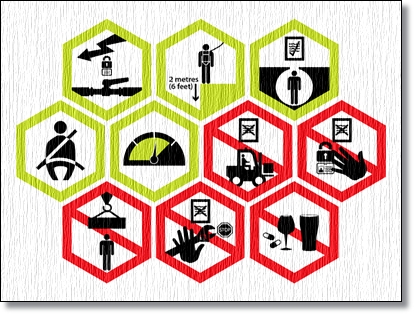Vibrant Regional Tourism: Role of Public Safety Laws

 |
A recent Ipsos Synovate Survey captured in the Saturday Nation (October 20, 2012) revealed probing statistics. According to the survey, Kenyans do not take personal responsibility for their own safety on the road. Over half of the people interviwed (58%) indicated that the accidents they witnessed were caused by drunk driving while 71% believed that accidents were linked to speeding. Another study by the Swedish University of Agricultural Sciences reported in the Daily Nation (October 15, 2012) indicated the proliferation of contaminated vegetables in Nairobi. According to the report, kales (Sukuma Wiki) found in most of Nairobi's market places are contaminated with heavy metals, pesticides, fertilizer residues, E.Coli and Salmonella bacteria. These cause food poisoning among other digestive and respiratory tract complications.
To address the public health challenges related to alcohol consumption, Kenya passed the Alcoholic Drinks Control Act, 2010 with the hope of stemming some of the negative effects of alcohol. Most recently, The National Transport and Safety Authority Act, 2012 was put in place to address incidences of deaths caused by road accidents. On alcoholic beverages, the Act whose street name is “Mututho Law” faces tough challenges given its focus on the formal brews while the informal sector that controls close to 67% of alcoholic beverages consumed is off its radar.
The most recent Act on transport safety is likely to face an uphill task since its framing appears to focus on drivers as the main culprits responsible for highway deaths. The act neither envisages the fact that the country can import faulty automobiles nor that poorly designed roads with no lanes for vehicles with mechanical problems, unmarked roads and roads with potholes – can also cause fatal accidents.The roads and alcoholic policy acts face the traditional problem of need for disciplined law enforcement without which the law will remain but on paper.
These two Acts are a good signal to countries concerned about the safety of their citizens. More however needs to be done to streamline the law to identify the actual offense and omission that needs to be addressed.
As East African Community member states’ drive towards regional integration, the issues on public health and safety of their citizenry have to be addressed jointly. Uganda, Tanzania, Rwanda, and Burundi are yet to upgrade their National Alcohol Policies; perhaps they are keen to watch progress in Kenya before they act. A regional policy approach should be encouraged to dig deeper into the results of safety surveys and evolve policies that address aspects of personal responsibility and state supervision. A balanced focus on the reality of challenges on highways that lead to accidents; aspects of informal and formal production of consumed alcohol and sale of contaminated foods calls for investment in public awareness campaigns and need to address possible state omissions in public policy.
East Africans need not re-invent the wheel. The World Health Organization has addressed road safety challenges in the Global Status Report on Road Safety 2009 and its 2010 resolutions on how to reduce harmful use of alcohol. The quest for enhanced freedom of movement in the region should go in line with safety of the citizens. A joint policy will streamline driver training, testing and licensing in the region. It will also ensure that food safety and alcohol policy standards apply across the region. To leave policy upgrades to one member state may be disastrous and lead to a “contaminated” implementation for fear of creating non tariff barriers. Over a 100 million Eastern Africa tourists are waiting to tour the region. Let the laws open the doors.
The festive season is approaching fast and travelers in the region want safety on the highways and safe foods. It’s a season to guard against cheap and adulterated alcohol that previously has made some go blind. The Highway Code in Kenya has been tightened to help reduce the number of fatal accidents. Will policy makers in the region pull together to evolve joint policies to promote regional tourism?
East African member states should push for a joint public health policy to address the concerns of their citizens. Food and transportation safety should be addressed in a structured, scientific and objective manner. Clear structures will enable relevant authorities to withdraw from the market contaminated foods; automobiles with engineering faults and redesign highways to enhance safety for users.
James Shikwati, Director Inter Region Economic Network [email protected] Twitter @shikwatijames
